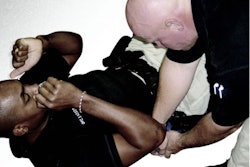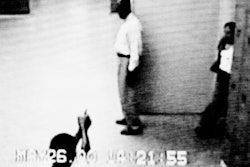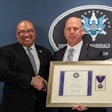A Marine died in Anbar Province, Iraq, yesterday. It’s Nov. 8 when I write this. And a Marine died yesterday in Anbar Province. Far from his or her loved ones.
I never served in the military, not in peacetime, nor in war. But there’s at least one thing I learned from my father and brother who both served: A soldier’s life can be very lonely.
So can the life of a loved one waiting at home to hear the voice of that soldier, just to know that he or she is OK. I was only 10 at the time, but one of my most vivid childhood memories was the look of joy and relief on my parents’ faces when the phone would ring in the middle of the night, and it would be my brother calling from Da Nang or Phu Bai or Dong Ha. Those calls were rare and brief; phone time was like gold during the Vietnam War.
Today, there are about 200,000 Americans deployed in war zones and in peacekeeping operations throughout the world. Many of them are reserves and National Guard, who in their non-military careers serve as cops.
If you know these officers who are also soldiers, then you are probably doing everything that you can to help them and their loved ones left behind. If you don’t, you’re probably like the rest of the country. You sometimes forget that we’re at war.
It’s easy to forget the men and women we collectively refer to as “the troops.” It’s easy to forget the hardship they are suffering, the horrors that they must cope with, and the sacrifices that they have made.
But for many Americans, this war is not about news reports and political discussions. It’s about whether their husband, wife, son, daughter, or other loved one is OK. They don’t forget.
Last week, I went for a walk in my neigborhood. And as I leisurely strolled the streets, I came to a house where all the trees in the front yard were wrapped with yellow ribbons. On one of these trees was a photo of a young man in uniform. It bore the simple message: “Pray for Michael.”
Amen. If you’re so inclined, pray for all the Michaels and Michelles that are serving us overseas. And pray for their families at home.
Then do something to let them know they are not forgotten. Send them a holiday present.
There are a couple of ways you can send a gift to a soldier in theater this holiday season.
You can make a donation to www.Americansnipers.org, a group started by a SWAT officer that provides equipment and creature comforts for snipers serving in Iraq and Afghanistan.
You can send a package yourself. The Post Office will not deliver mail to “Any Soldier” like it did in previous wars. So you need to have the name of a specific soldier. If you don’t know somebody who is serving, you can get a list of names from at least two sources: Retired Marine Jack McHugh, who has a son serving in Iraq, has a mailing list at usmcewc@ec.rr.com. Since 1998 Adoptaplatoon.org has been helping Americans send CARE packages to troops in the field. You have to apply and be approved to receive an address from Adoptaplatoon.
Once you have the name of a soldier in theater, you can send him or her a package. McHugh says the items most in demand include snacks, sodas, head lamps, cigars, magazines, books, and toys and candy that they can give to Iraqi children.
After you send a package to a soldier in theater, think about their loved ones left behind. Do something nice for them and give to local charities that help them.
The holidays are a terrible time to be deployed overseas. Do anything you can to brighten the lives of these brave Americans and the people who long to have them home this holiday season.












